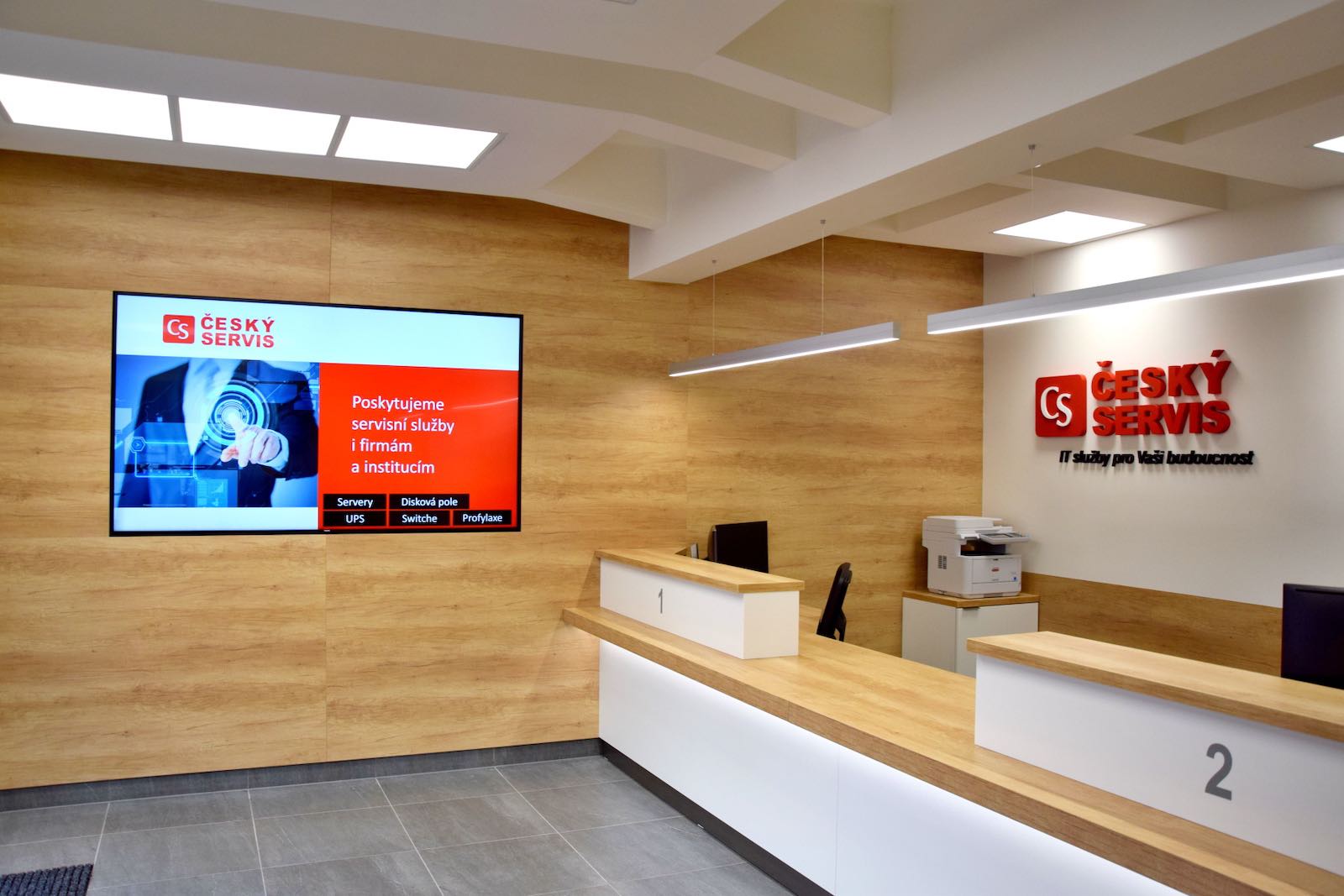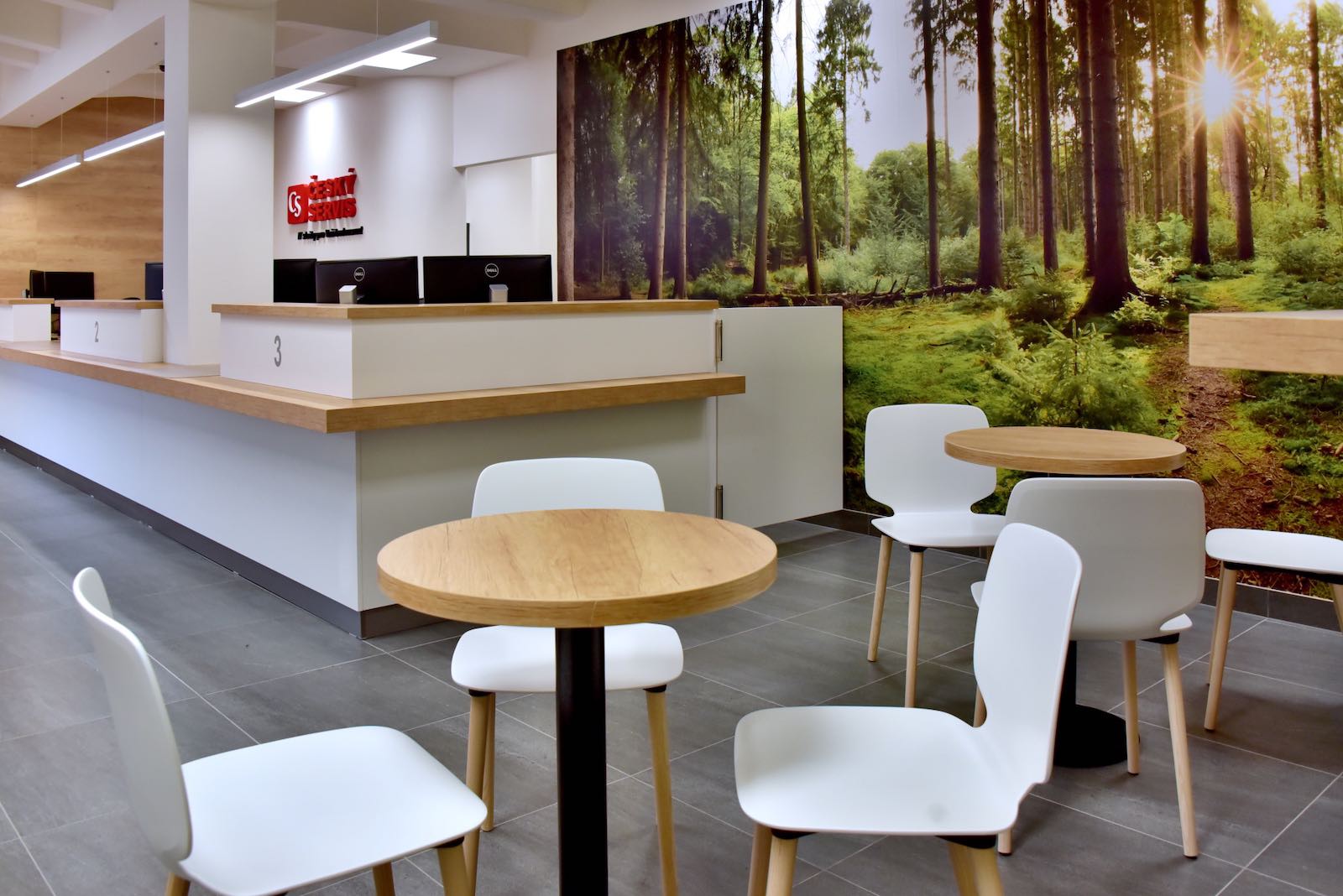At least according to our observation, there is a lot of conjecture, confusion and speculation among our readers about authorized Apple services. Therefore, we decided to try to refute at least some of them. And what better way to refute them than with an interview with a representative of one of the most famous authorized Apple services in the Czech Republic, which is Czech service. With that, we talked about a whole range of interesting topics that could make many questions clear to you once and for all.
It could be interest you

We'll start right away pretty sharp. Lately, I've been coming across more and more advertisements for unauthorized Apple services that boast that they use original components for repairs, which in my opinion is complete nonsense. The problem is, however, that the issue of spare components is still a big unknown for many apple growers, and therefore these services will de facto jump on the bandwagon. So could you please explain once and for all how it is with using genuine parts?
The answer to this question is quite simple. The manufacturer supplies new original parts worldwide only to authorized service centers, and these services are contractually prohibited from selling them under heavy fines. At unauthorized services, we therefore come across non-original parts, which are sometimes of better and sometimes worse quality, or with parts that are from used devices and therefore definitely not new. Although this topic has been, and I believe still is, controversial, we generally recommend using only original parts and an authorized service, as this is the only way to ensure 100% reliability.
Thanks for the clear and understandable explanation, which will hopefully help many people in choosing a service. Speaking of reliability and such, tell me what exactly does a service have to do to be certified as an Apple Authorized Service Provider? How long does the whole process take and how expensive is it, if applicable?
Since we provide service for Apple devices (Czech service – note ed.) for 18 years, so as the longest-running authorized Apple service in the Czech Republic, we can confirm that maintaining and obtaining status is a long-term and financially costly process. Over time, there is a need to essentially constantly update tools, computers, and overall equipment, as well as train and certify individual technicians. In short, it is a cycle that must be constantly taken care of and monitored. In other words, it's not easy.
I honestly didn't expect anything else, because I know how complicated it is for even authorized dealers. Speaking of which, I wonder if Apple is actually talking to you in the design of your service? After all, in the case of APR, the dictation from Apple in terms of the appearance of the stores, or the decoration, is quite visible across all networks. So how is it with you? Do you have to adhere to a standard?
Unified design is not currently officially required by the manufacturer for services, unlike APR as you say. However, service centers should follow current trends regarding customer comfort. We ourselves have recently worked a lot in this direction, as we have carried out an extensive reconstruction of our branch in Prague. If you are interested, you can view it on our website, Facebook, or visit us in person.
It is true that the unified design required by Apple would probably not make much sense for services, as they are simply used differently than shops. After all, your task is to repair the device in the shortest possible time, and not to impress with shiny iPhones on tables. Speaking of repairs, how do you actually communicate with Apple if you run into trouble? Is it possible to contact his people for more complex repairs at any time, or will he simply provide, for example, a thick manual with all the repair options for the given device and then not worry anymore and leave everything to the service to deal with it himself?
Option A is correct. Apple has very well-developed service procedures, which in the vast majority of defects are actually sufficient to correct the repair procedure. I personally see this as a great thing. However, if something more complicated needs to be solved, we have a support team at our disposal that is able to help us almost online. If necessary, questions can be subsequently escalated.
That sounds great, must be incredibly useful for repairs. And what repairs do you actually carry out most often?
The most common are, of course, mechanical defects caused by customers, both on phones, tablets and MacBook keyboards. If I were to be more specific, it mostly involves repairing mobile phone displays and servicing MacBooks as part of the REP (a free service program announced by Apple - editor's note), which includes, for example, problems with keyboards.
I didn't even expect a different answer from you, and I think our readers will too. And what are the most common problems with which customers complicate your work? I mean, for example, various forgotten logouts from the account and the like.
If it is necessary to carry out a service intervention on our part, it is necessary that the Najit security service is turned off on the customer's device. In order to turn off this service, you need to enter your Apple ID password, which, unfortunately, customers sometimes forget. Of course, this complicates the entire repair, because as long as this service is turned on, we as a service are only able to perform diagnostics on the given device.
And what if the customer does not remember his password? What is the procedure then?
There are several ways to recover your password. You can reset it using the security questions that are generated when you enter your Apple ID, or you can also use another device signed in to the same Apple ID. If you do not know the answers to the questions, there are only a few options left, such as a reset using a phone number or e-mail, and if even that is not possible, it is necessary to contact Apple support.
So our readers can only recommend that they simply remember their passwords, because otherwise they can get into serious trouble in the event of a correction. I think the same can be said about regular backups, which can save data in case of device destruction. However, we can get into a situation where we cannot perform a backup precisely because the device "died" before we had time to perform an actual backup. Do you have any better options in this direction in terms of backing up a device that, for example, cannot be turned on?
We also generally recommend backing up data regularly automatically or manually. In the case of a mobile phone that cannot be switched on, it is difficult for us to help with the backup. With a laptop or computer, there are far more ways to back up your data if you are unable to turn it on. In any case, we are not talking about the fact that we are able to do this in 100% of cases. So really back up, back up, back up.
Speaking of relatively extreme situations, tell me how the exchange goes in general piece by piece with Apple devices as part of a claim? Do you decide on it, with the idea that when you accept it, you pull out a new iPhone from the warehouse and it's done, or are the products sent somewhere "to the switchboard" where they are assessed? And is Apple actually in favor of piece-for-piece replacements? Doesn't he have a problem with them, or on the contrary does he try to "force" the services as much as possible to fix broken products no matter what happens, even though it's often a losing battle?
In general, according to my experience, the main goal is to settle the complaint as soon as possible. Therefore, there is a possibility of exchanging the claimed piece for a new one in certain prescribed cases. We can also decide on a piece-for-piece exchange in the first line, according to the manufacturer's procedures. But there are also special defects where we have to send the iPhone to the manufacturer's central service. As for Apple's position, its effort is of course to repair the device rather than replace it.

It's great that even here the focus is really on speed, which is what many of us need the most when making complaints. But there were enough more inquisitive questions about the operation of the service. Let's lighten up our entire conversation with a few spices at the end. The first could be information about upcoming Apple products. For example, does Apple send out any news patch materials ahead of time, or does it distribute everything after it's introduced so nothing gets leaked?
We will learn everything only after the official launch. However, we manage to prepare for everything very quickly and on time, so that we are able to respond to the customer, as far as service support is concerned, right after the release of a new product. In my opinion, the procedure is generally set up correctly and is taking place without any surprises for us. At the same time, the manufacturer is ensured that the information does not get to the public before it is put on the market, because simply no one has it.
Now you have probably disappointed many dreamers who believed that by working in Apple service they would learn about everything ahead of time. However, to call you an Apple service is not really correct, as you repair much more (for example, devices from Samsung, Lenovo, HP and others - editor's note) than just Apple products. However, I think that in the eyes of many people you are simply experienced as authorized Apple service. Does the ratio of serviced electronics correspond to this?
As for phones, we really have the most customers with Apple products, precisely because we have been providing quality service on the market for many years. However, we also repair other products for private customers, as well as for large corporate customers, such as all brands of laptops and PCs, monitors, televisions, printers, IPS, servers, disk arrays and other IT solutions. It's just a lot.
So you can really handle a lot. Therefore, let's close our conversation with a memory of the most interesting Apple product that you have received for service, and of course also the most interesting electronics that you have serviced or are still servicing.
A few years ago, actually while it was still possible, we had a customer who had his iPhone 3GS regularly serviced. We also have customers with the PowerMac G5, which is still very popular despite its age. As for electronics in general, it sometimes happens that a laptop from, for example, IBM from 2002 or 2003 appears and the customer demands its repair at any cost. Of course, we try to accommodate him, but sometimes it is unfortunately more difficult due to the age of the computer.
So you'll have fun with both state-of-the-art electronics and tech retirees. The comparisons must be incredibly interesting. However, we can talk about those again sometime next time. Thank you very much for your answers and your time today. Let it be Czech service continues to thrive.
Thank you and I wish many happy readers.
 Flying around the world with Apple
Flying around the world with Apple 



Did you write that article in ČS yourself? It almost seems that way. Can't you at least write with whom for ČS you conducted the interview or did I miss it? In any case, Český Servis does not repair, but only replaces entire components. But all authorized services do that. In the article you mention repairing a G5 computer, but if you bring in a computer that is no longer supported by Apple, you will pay for diagnostics and they will tell you that they will not do anything about it. For example, if you want to fix the resource on a Mac Pro. Therefore, there is no choice but to visit unauthorized services, which are often cheaper and will perform the repair better.